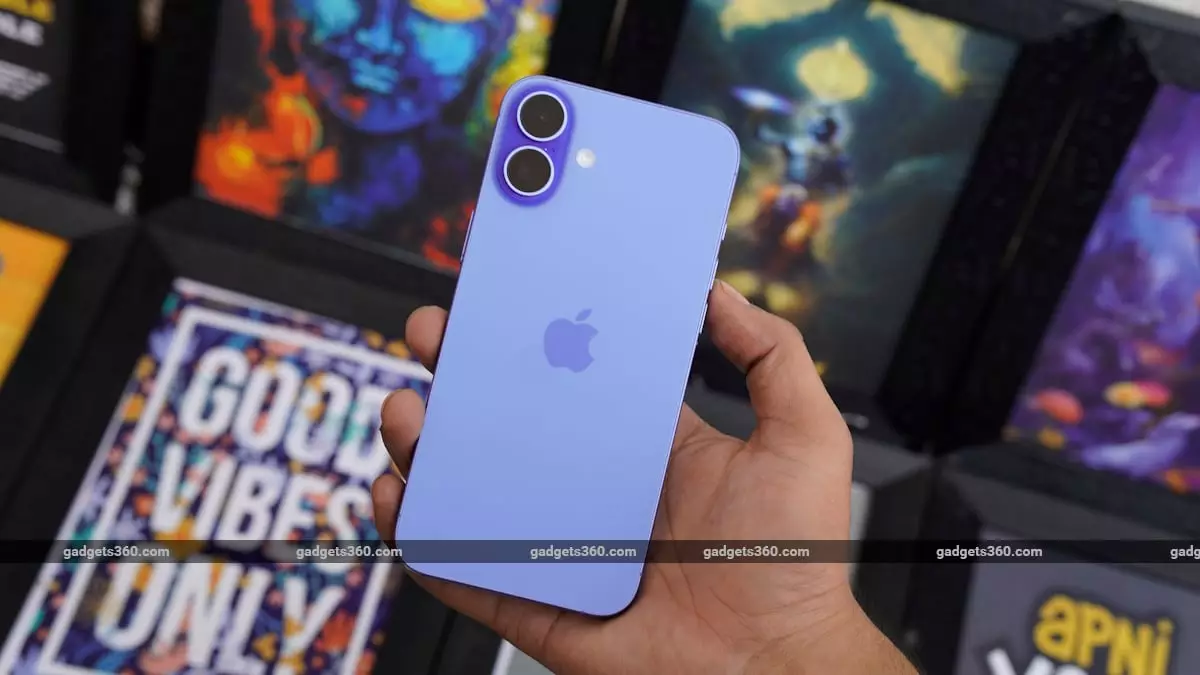Every year, Indian consumers are bombarded with sensationalized sale events promising unmissable discounts and unbeatable deals. Flipkart’s upcoming GOAT Sale 2025 is no different. While the event boasts of slashed prices and exclusive offers, a closer look reveals that these “discounts” often blur the line between genuine savings and clever marketing deception. The narrative of a “great deal” is often a marketing mirage designed to nudge consumers into impulsive buying, rather than providing real economic benefits. The strategic timing of this sale, coinciding with Amazon Prime Day 2025, intensifies the competition—yet both events fundamentally serve to accelerate consumer spending rather than promote financial prudence.
The Power Play Behind Discounted Devices
The promotional focus on premium gadgets like the Nothing Phone 3a Pro or the latest iPhone 16 exemplifies how high-end products are weaponized to attract attention. While the discounts on these flagship phones are touted as significant—some reductions reaching hundreds of dollars—the underlying question remains: Are consumers truly saving, or are they merely succumbing to inflated prices pre- and post-sale? Many brands, including Apple and Samsung, inflate their original prices to create a perceived bargain during sales, effectively giving the illusion of a deal. For middle-income buyers, especially, these manipulative pricing strategies can lead to impulsive overspending, leaving them in debt boxes or financial stress once the glow of sale fever dissipates.
Replicating Consumer Behavior for Profit
Flipkart’s strategy of offering early access to Flipkart Plus members and partnering with banks for instant discounts effectively creates a sense of exclusivity and urgency. But it’s a calculated move to foster habitual purchasing behaviors—making consumers less rational and more driven by the thrill of grabbing a “discounted” device. Incentives like cashback through loyalty programs or UPI discounts, while seemingly beneficial, subtly encourage consumers to prioritize short-term savings over long-term financial health. Such tactics stoke compulsive buying, exploiting human psychology to increase platform loyalty, often at the expense of genuine value.
The False Promise of exclusive tech deals
Promoting brands like Nothing and CMF during the sale amplifies the appeal of contemporary, innovative devices. However, these targeted campaigns often exaggerate the exclusivity or urgency of purchase. Are these “discounted” devices genuinely cheaper, or are they merely priced higher initially to emphasize a discount? The reality is that many of these flash sales are calibrated to create hype rather than deliver authentic savings. Consumers should be wary of short-lived price dips designed to create FOMO (Fear of Missing Out)—a tactic that profits sellers more than consumers. When the market is flooded with offers on trendy tech, it becomes increasingly difficult to separate worthwhile investments from impulsive splurges.
Consumer Responsibility in a Culture of Overconsumption
In a capitalist economy driven by constant hype, the onus should not bear solely on consumers to remain vigilant—a significant share lies with the sellers and marketers who manipulate their choices. The repeated cycle of discount events cultivates a harmful consumer culture where price comparisons become meaningless, and the rush to buy overshadows rational decision-making. Instead of genuinely empowering buyers, these sales often serve as a guise for pushing inventory over profit, with little regard for economic sustainability. As consumers, we must develop a skeptical mindset, resisting the allure of superficial discounts and prioritizing value over vanity.
The Need for Authentic Consumer Advocacy
While infrastructure such as price tracker apps can somewhat protect savvy shoppers from deceptive pricing tactics, systemic changes are needed. Regulations that increase transparency around original prices and discount claims, along with education about savvy shopping, are crucial. But more fundamentally, we need to question the entire premise of hyper-commercialized sales events—do they serve the consumer, or do they serve the bottom line of corporate giants? Without meaningful reforms and a conscious shift in consumer behavior, these sales will continue to be more about marketing mastery than genuine value creation. The illusion of saving is often more profitable for corporations than for the empowered, financially aware buyer.



Leave a Reply